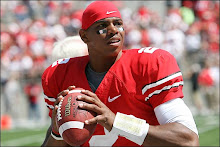
Last week we met with Louis Masur, professor of American Institutions and Values at Trinity College. He talked with us about the importance of photographs in our society, and how one picture can shift the beliefs and convictions of millions. Masur’s prime example of this was a photograph taken in 1976 of a white man attacking a black man with an American flag at a rally in Boston. The image is stunning, with the attacker about to spear the helpless man with the flag’s pole. Masur talked about how the photo not only sparked the interest of millions in America, but it also put into question the progress of race relations in our country.
This is just one of millions of pictures that have shaped American history, but sometimes the American government doesn’t want certain images to be seen. This is what is occurring right now, as President Obama is refusing to release images of Iraqi prisoners being humiliated or hurt by American soldiers. The President, who months earlier told the public that he would not withhold war photos like George Bush, changed his mind last week when government officials convinced him that the photos would be harmful to the soldiers and would not help the cause in Iraq. Organizations such as the American Civil Liberties Union (ACLU) are furious at Obama’s decision to withhold the photographs, saying the public has a right to see them and judge the pictures for themselves. This is not the first time in the Iraq War that controversial photos have surfaced. Five years ago at the Abu Ghraib prison, several photos were taken that showed soldiers physically and sexually abusing and humiliating Iraqi prisoners of war. The pictures caused a backlash against the military and put the cause of the war back into question. Now, as Obama seeks to conceal these new photos, Americans are wondering if the President could be accused of using the same tactics of lies and deceit as George Bush.
Back in 1971, the Supreme Court had to decide whether or not to release secret documents containing information about the Vietnam War. The court ruled that the documents should be released because the defense that “[people] could get hurt from the release of the papers” was not compelling enough proof. Obama is using that same defense to keep the photos under wraps, and officials think the courts will eventually make the same decision they did 38 years ago. “What Obama cites as dangers, a court might find mere speculation,” said an ACLU lawyer. And in the case of the Pentagon papers almost forty years ago, the papers were eventually published, but no soldiers or Americans were harmed. This legal precedent could hurt Obama’s chances of keeping the photos secret.
I don’t know if Masur with agree with Obama’s decision to withhold the photographs from the press. But what I am sure of is that Masur would tell Obama that the impact of these photos would extend far beyond the individuals who committed the crimes against the prisoners. Hatred would be directed toward the entire military force in Iraq for letting this atrocity happen. The Obama administration would be under pressure to explain why they had tried to cover them up, and Obama himself would take a lot of the heat. So would any good come out of releasing these photos? I believe the anger already associated with Iraq would only become more intense, and our country would be further divided—especially in view of Obama’s strong stand. Maybe this is one time an image could stir up more emotion and controversy than our country can handle, especially on the world stage. Maybe those images are best left alone.


No comments:
Post a Comment